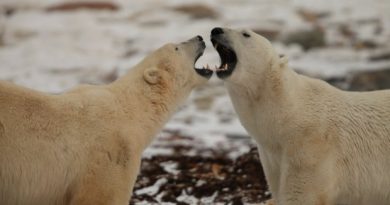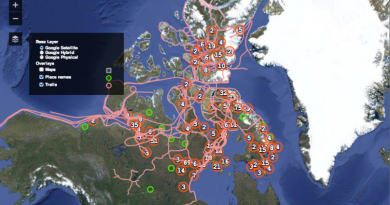EU Seal Ban Suspended
Inuit leaders questioned legality of ban on Canadian seal products

Video: Seal Ban: The Inuit Impact
A European Union ban on seal products was temporarily suspended Thursday, the day before it was set to take effect, because of a legal challenge by Inuit leaders.
The Inuit Tapiriit Kanatami, representing Canada’s 53,000 Inuit, and other Inuit organizations in Greenland and Norway filed a legal challenge against the EU’s ban earlier this year, calling it illegal and immoral.
The Canadian Seal Marketing Group and the Fur Institute of Canada are also involved in the challenge.
The EU’s General Court, based in Luxembourg, agreed to impose a delay on the ban in order to properly consider the legal challenge, saying the delay was in the “interest of the proper administration of justice.”
 Federal Fisheries Minister Gail Shea told reporters in St. John’s on Thursday that the European Court of Justice granted an injunction to several organizations that have launched a legal challenge of the ban, which was to take effect Friday. (CBC) “I’m pleased to report that we have just learned this morning that the petition launched by the Inuit Tapiriit Kanatami for an injunction has been granted,” Federal Fisheries Minister Gail Shea announced in St. John’s.
Federal Fisheries Minister Gail Shea told reporters in St. John’s on Thursday that the European Court of Justice granted an injunction to several organizations that have launched a legal challenge of the ban, which was to take effect Friday. (CBC) “I’m pleased to report that we have just learned this morning that the petition launched by the Inuit Tapiriit Kanatami for an injunction has been granted,” Federal Fisheries Minister Gail Shea announced in St. John’s.
“This means that the ban does not come into force tomorrow.”
Inuit leaders were pleased with the news.
“The … [court] has decided there’s more time required to properly review our request,” said Mary Simon, president of the Inuit Tapiriit Kanatami, told CBC News. “To us, that is a very important decision because it is rare that the European Union court would suspend an EU legislation.”
“To us, it makes it clear that the EU court is taking our legal case seriously.”
Simon expects the court case will be heard in the fall or early winter.
Inuit exemption part of ban
The proposed EU ban does exempt trade in seal products that come from aboriginal groups, but Simon said the Inuit fear their sales will still plummet when the ban comes into effect.
“When the market collapses, our market collapses with it,” she said. “This has a very direct impact, and therefore, this Inuit exemption, or so-called Inuit exemption, won’t work for us.”
Animal welfare advocates said the temporary court setback ultimately won’t change the fate of the seal hunt.
“The EU court may wish to look more closely at the ban, but the court of public opinion around the world is clear: the seal slaughter is uniquely cruel and no market wants the pelts,” said Dan Mathews of People for the Ethical Treatment of Animals.
“At the end of the day, this is a consumer issue and seal skin has a worse stigma with the public than herpes.”
Ban a disgrace: Harper
Before news of the injunction emerged, Prime Minister Stephen Harper spoke out against the scheduled ban, saying the federal government is “very strongly in opposition” to it.
Prime Minister Stephen Harper spoke out against the EU ban on seal products while he was in Miramichi, N.B., before it was suspended. (CBC) Harper said it’s “flagrant discrimination” against the Canadian sealing industry, which he described as a sector that employs “hard-working people who are also of modest means.”
“It is a disgrace that they’re treated this way in some countries based upon no facts or information whatsoever. So, we strongly object to the decision,” Harper told reporters at a government announcement in Miramichi, N.B.
Last November, Canada made an official complaint to the World Trade Organization about the European ban.
Stockwell Day, who was trade minister at the time, said last year that Ottawa had formally requested WTO consultations on the ban, the first stage of the world body’s dispute-settlement process.
Day said the regulation, adopted by 27 European countries in 2009, was a violation of the EU’s trade obligations.
Canada, he said, is arguing that the seal hunt is “a legitimate economic pursuit” and that the EU ban is based “neither on science nor on facts.”
Canada exported about $5.5 million worth of seal products to the EU in 2006 when the price of pelts peaked at over $100, but the market has been cut in half in recent years with about $2.5 million worth sent to the region in 2008.
While there are about 6,000 licensed seal hunters on the East Coast, only a few hundred took part in last season’s hunt. About 67,000 seals were taken — most of them harp seals off Newfoundland — even though the catch limit was about 350,000.
The Newfoundland government says the industry injected about $24 million into the provincial economy in 2008.



